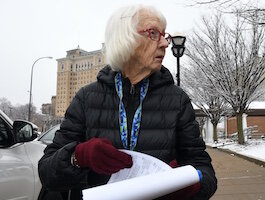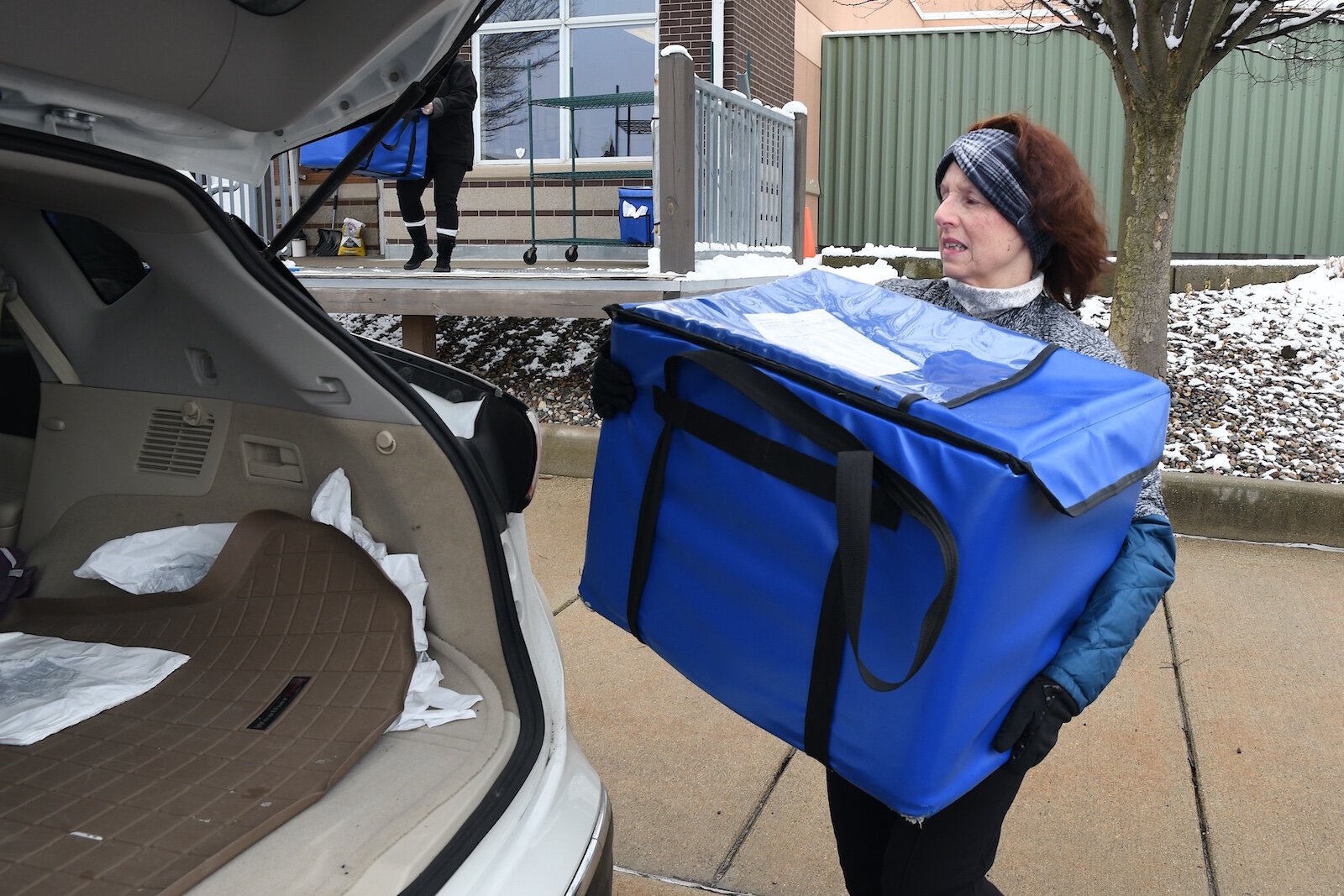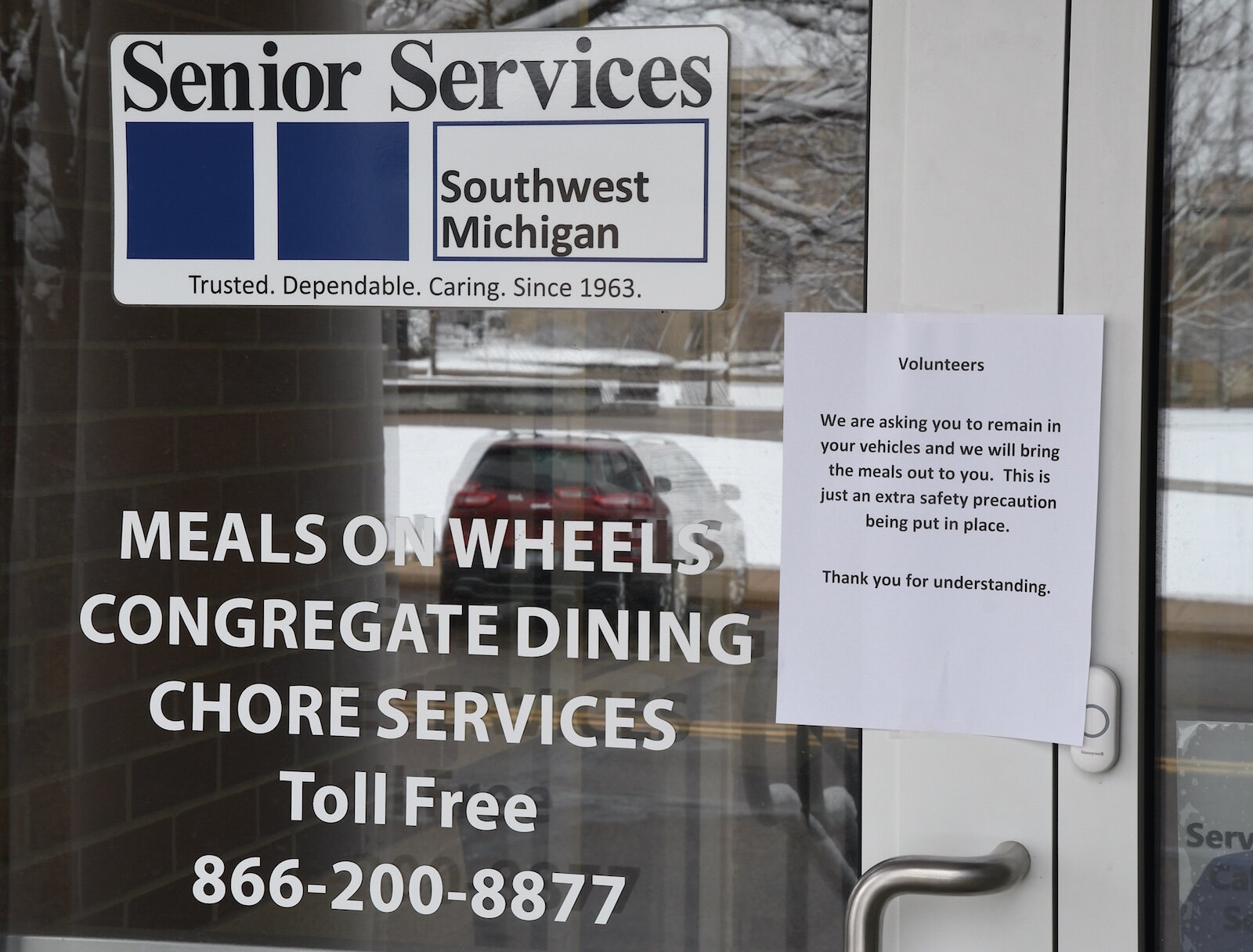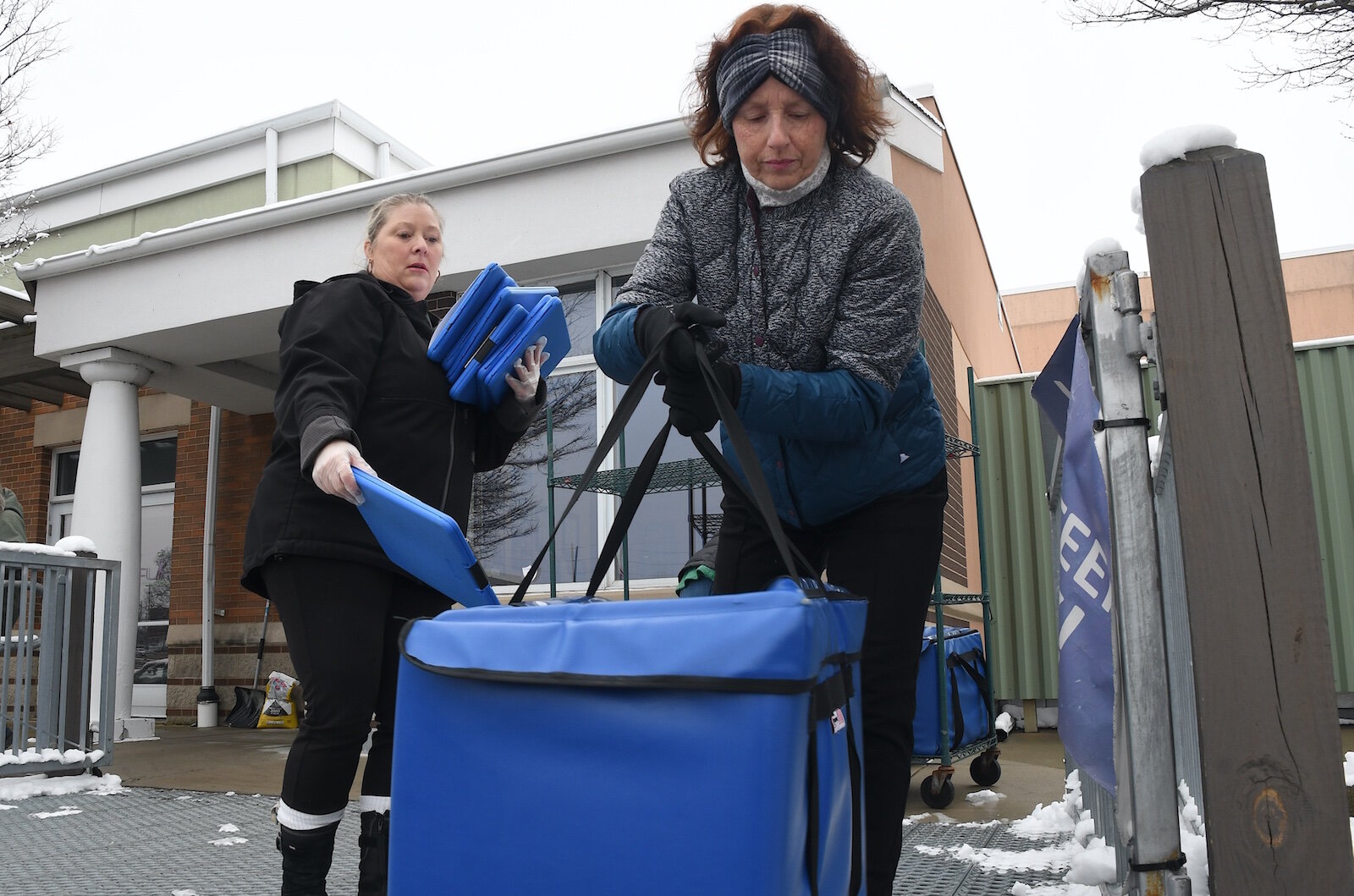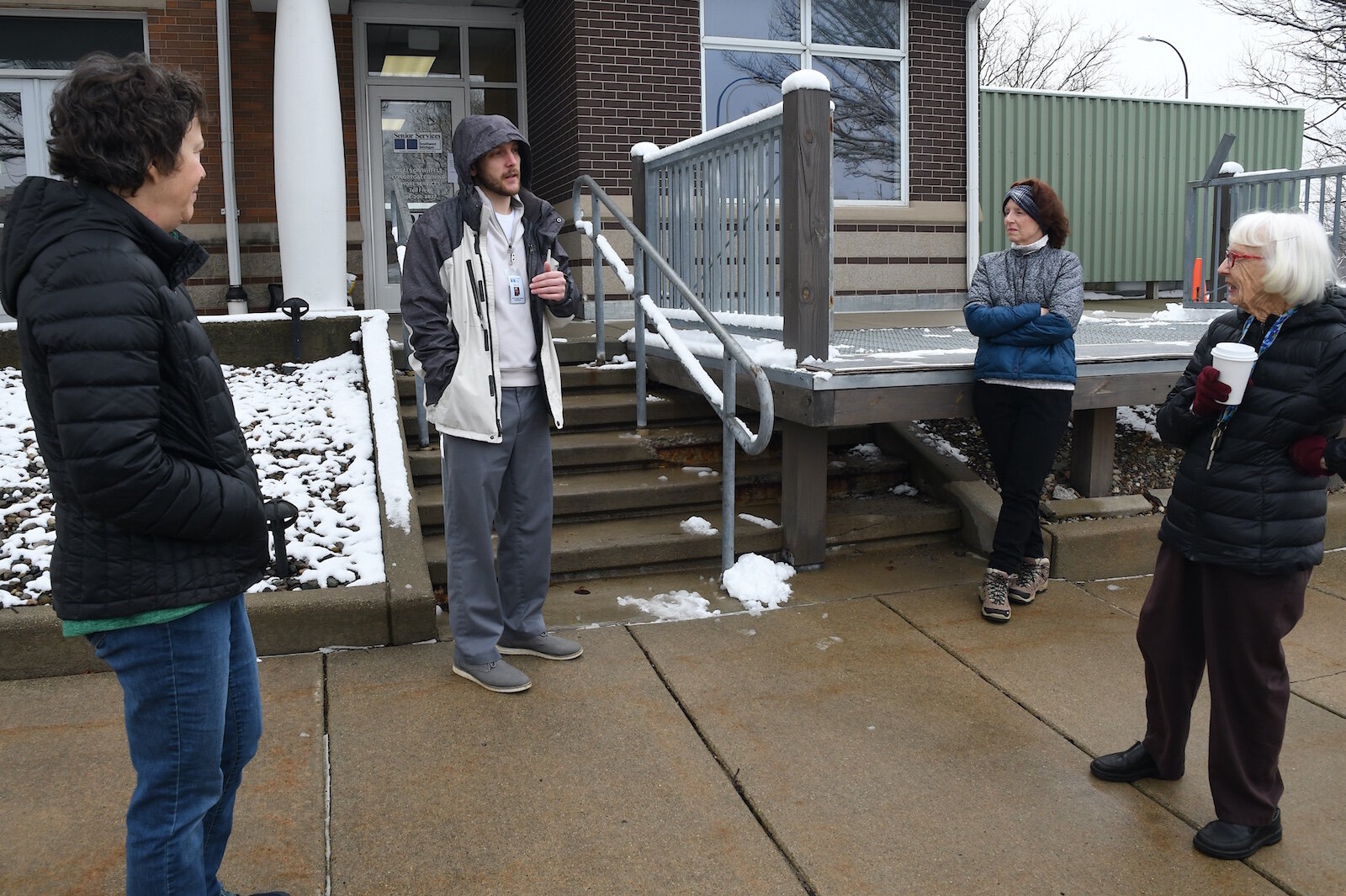Editor’s note: This story is part of Southwest Michigan Second Wave’s On the Ground Battle Creek series.
Among the critical services experiencing upheaval in the wake of the coronavirus are congregate meal sites for senior citizens in Battle Creek and Kalamazoo which have closed, leaving many who took their meals at these locations without the social interaction that was a major attraction for so many.
“Congregate meals sites are about more than a meal, they’re about going there for friendship and feeling like you’re a part of something. Senior centers are feeling that as well,” says Karla Fales, CEO of CareWell Service Southwest.
On March 16, a total of 24 congregate meals sites — 11 in Calhoun County and 13 in Kalamazoo County — were in the process of being closed.
“We were definitely ahead of other people,” Fales says. “By the time we got direction from the State of Michigan we were already doing much of what was being asked.”
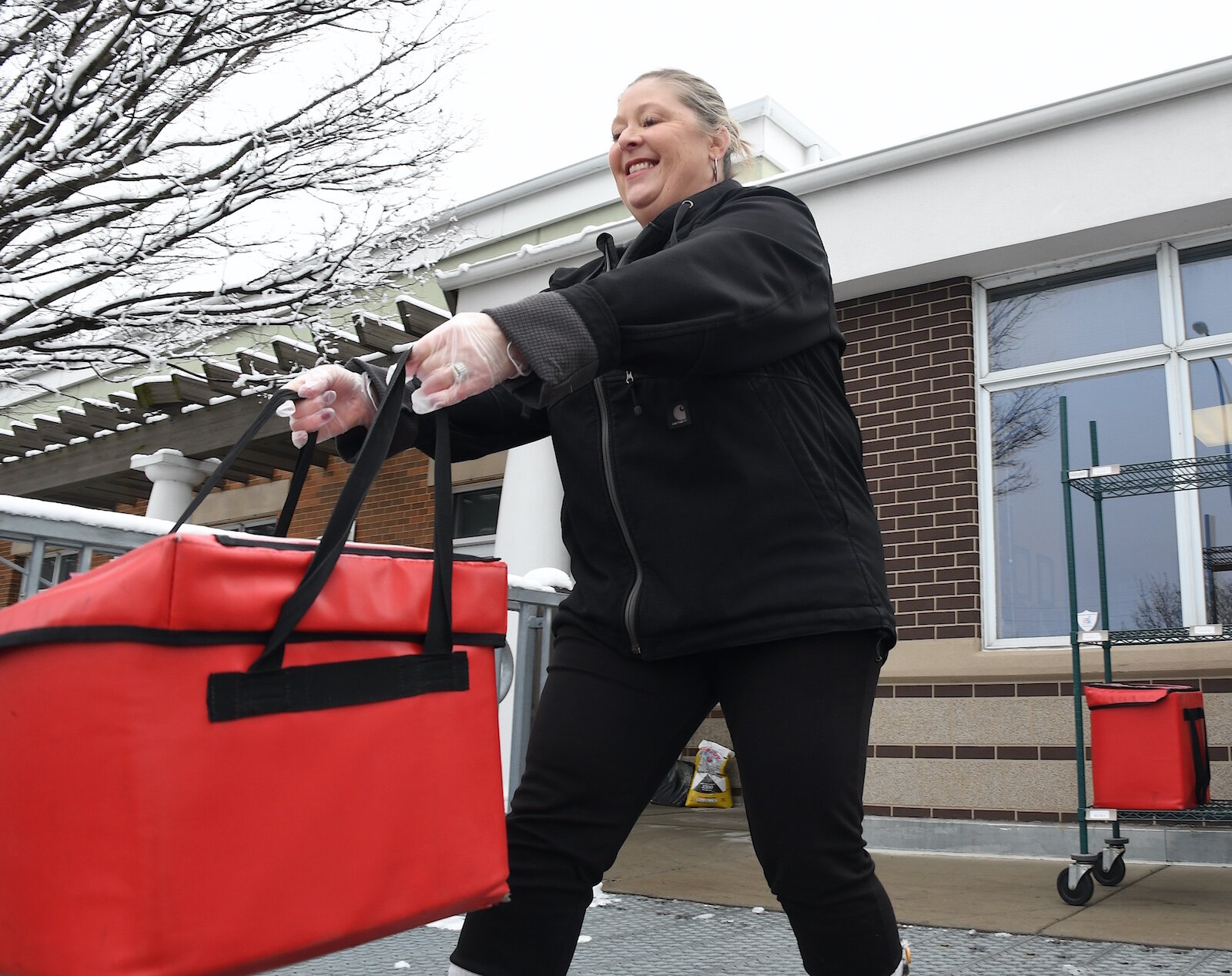
While a number of senior-focused organizations throughout the United States are offering drive-up service as an alternative, Senior Services, Inc., operations in Battle Creek and Senior Services of Southwest Michigan, headquartered in Kalamazoo, are also packaging up meals in three-compartment trays which are being delivered by staff members and volunteers to seniors living in apartment complexes, says Dan Pontius, Director of Operations for Senior Services of Southwest Michigan.
“People leave their apartments in small numbers to get their meals,” he says.
This effort is in addition to the traditional Meals on Wheels program which continues unimpeded and is experiencing increased demand as programs such as the congregate meal sites close down temporarily.
“Usually at this time of the month, we have 30 new intakes,” Pontius says. “We met the other day and had 75 already.”
This uptick, which is expected to climb, is the result of participants in Senior Partners and Pace who are taking their meals at home because the day center they normally frequent isn’t available.
In 2019, the group and home-delivery meals programs served 1,164 older adults with 135,217 meals, says Helen Guzzo, Manager for Calhoun County Senior Services.
A portion of the contract for meals is covered by the Calhoun County’s Senior Millage which contributes $482,000. CareWell Services, Area Agency on Aging for Calhoun and Barry counties, collectively provide about $526,000 in state and federal funding to the meals program.
CareWell provides 52% of every dollar and Senior Millage 48%.
The county’s Senior Millage was first approved by voters in 1996 to fill gaps in available services and help older adults by promoting health, safety, and wellness. The Senior Millage raises approximately $2.7 million in taxes each year and is up for renewal on the Aug. 4, 2020, countywide ballot in Calhoun County.
This year, Guzzo says, the Senior Millage funds 22 different programs that operate county-wide administered by ten trusted nonprofit organizations to provide services to Calhoun County residents age 60 and older. In 2019, she says the Senior Millage programs assisted 6,568 older adults through its funded programs.
While waitlists for Meals on Wheels services are common in other areas of the United States, Fales says this has not been the case in Calhoun County because the Senior Millage includes funding for senior nutrition programs.
“We’re unique in Calhoun County because we all come together and make things as streamlined as possible for the provider,” Fales says. “We can leverage state and federal resources, which gets us more meals and eliminates the need for a lot of additional reporting. This gives us flexibility.”
This nimbleness made the process of switching funds from congregate to delivered meal service seamless.
Preparing for emerging needs
While creating new systems and shoring up existing meal delivery systems, Pontius says he and his partner organizations are focusing on providing seniors with 14 days-worth of shelf-stable meals in the event of a state or federally-mandated quarantine in response to the Coronavirus.
“We think our services would be deemed essential, but if the government shuts us down, we want our participants to have those meals,” Pontius says. “We call them shelf-stable meals because they will last for a long time and don’t necessarily require a microwave or oven for heating.”
A typical meal might include a can or container of Chef-Boy-R-Dee ravioli, a pudding cup or granola bar and shelf-stable milk. These meals have a shelf life of a few months to more than one year.
More than 6,000 of these meals are being put together at the Food Bank of South Central Michigan, based in Battle Creek. About 4,600 were delivered between last week and this week to people in Calhoun County and another 3,000 will be delivered to Senior Services clients in Kalamazoo County.
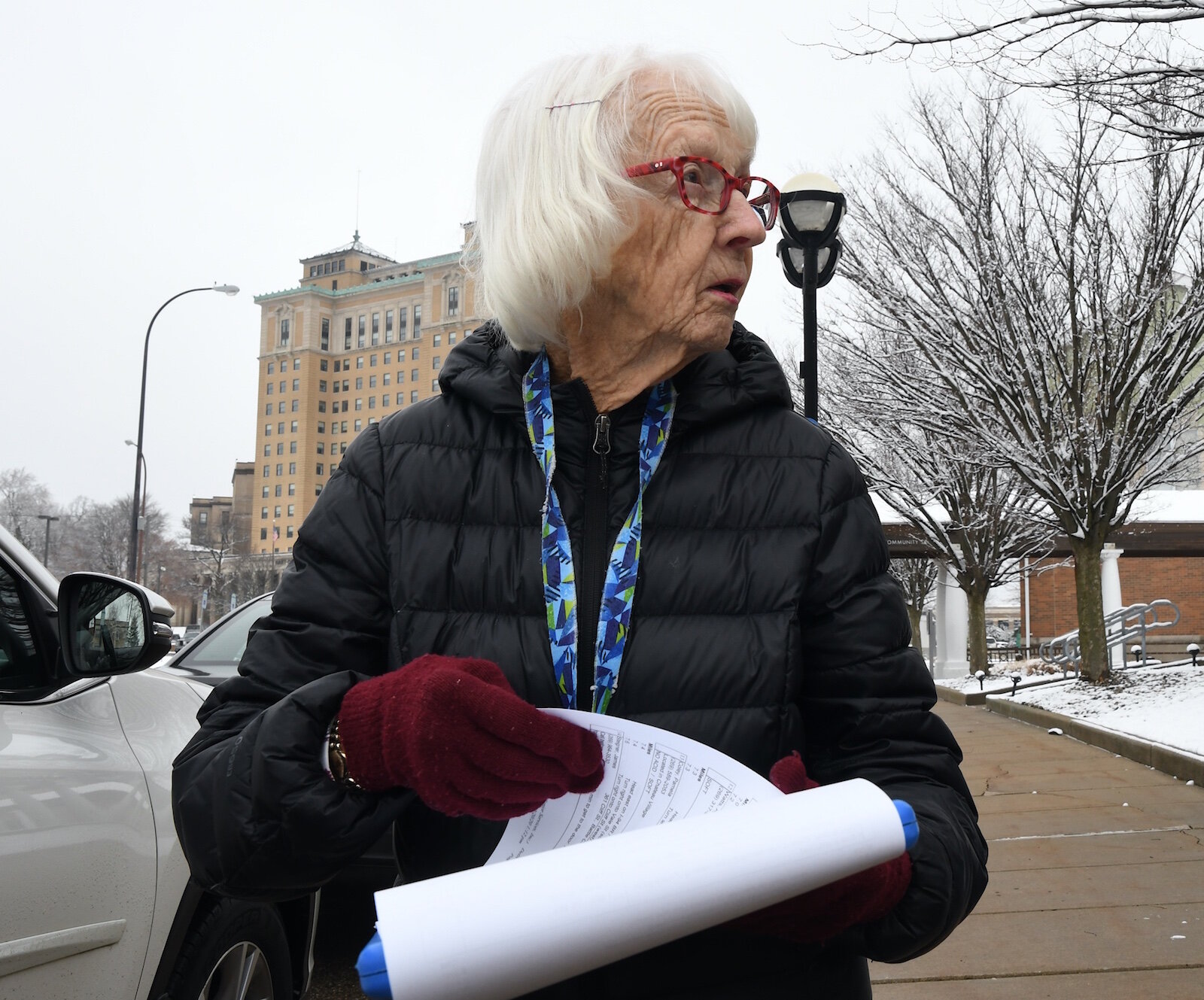
Pontius says, “Fortunately, we started that conversation with the Food Bank one-and-a-half years ago. We used to have to order those shelf-stable meals from Texas. Those facilities are now preparing these meals for distribution nationwide. The Food Bank came to us two weeks ago and hurried the process for us and started delivering those meals on (March 17).”
These meals also are known as Emergency Food Boxes which the Food Bank has been making available to area schools and police departments to address immediate hunger needs, Guzzo says.
“This has been (the Food Bank’s) initiative over the last six months,” she says. “It was perfect because the Food Bank was already prepared to meet the additional community needs.”
These needs include a Medicaid program serving seniors and adults over 18 that are medically and functionally frail enough to qualify for nursing home care. Known as the MI Choice Waiver, the program enables them to remain in the community and in their homes by providing services such as meals or transportation.
Fales says the restrictions have been loosened on who qualifies for home-delivered meals as a result of the Coronavirus pandemic.
How to volunteerThose interested in volunteering for the various Meals on Wheels program offered in Calhoun County for seniors may call 1-866-200-8877, ext. 137.
Typically, a family member or paid home health provider is able to pick up the meals which are generally for individuals 60 and older, but because of the growing logistical challenges, Pontius says anyone over 18 who lives at home and has high medical needs will be eligible to receive the meals.
An expanding network of volunteers also is coming together to pick up groceries for people who are not able to get to the store and Guzzo says a transportation system operated by the Community Action Agency through Senior Millage funding is continuing to operate, though the number of passengers at any given time is limited for health and safety reasons. The trips are only for food shopping trips and medical appointments.
Feeding the soul, not the virus frenzy
“One thing we know right now is that seniors are a little bit fearful and uncertain. We’re encouraging them and helping them to understand what’s going on,” Pontius says.
As has been widely reported, older adults are in a high-risk category when it comes to the virus and CareWell is joining with Senior Services in Calhoun and Kalamazoo counties to ensure that seniors receive the services they need to maintain their health and peace of mind in these unsettling times.
“We’re starting to gather volunteers and seniors to call and check in with seniors from a health standpoint but to also see if they’re open to talking about something other than Covid19 and checking to see if they have other needs,” Fales says. “We had one woman who said she had just gotten over the H1N1 flu and was afraid to leave her house, but she was running out of food.
“We have some staff and volunteers to deliver food and cleaning products and connect with seniors like her. We’re also starting to get calls on prescriptions and we’ve worked with them on that. We’re going to see much more of this.”
Pontius says daily meal deliveries present an additional opportunity to check on seniors, something he says is “crucial.”
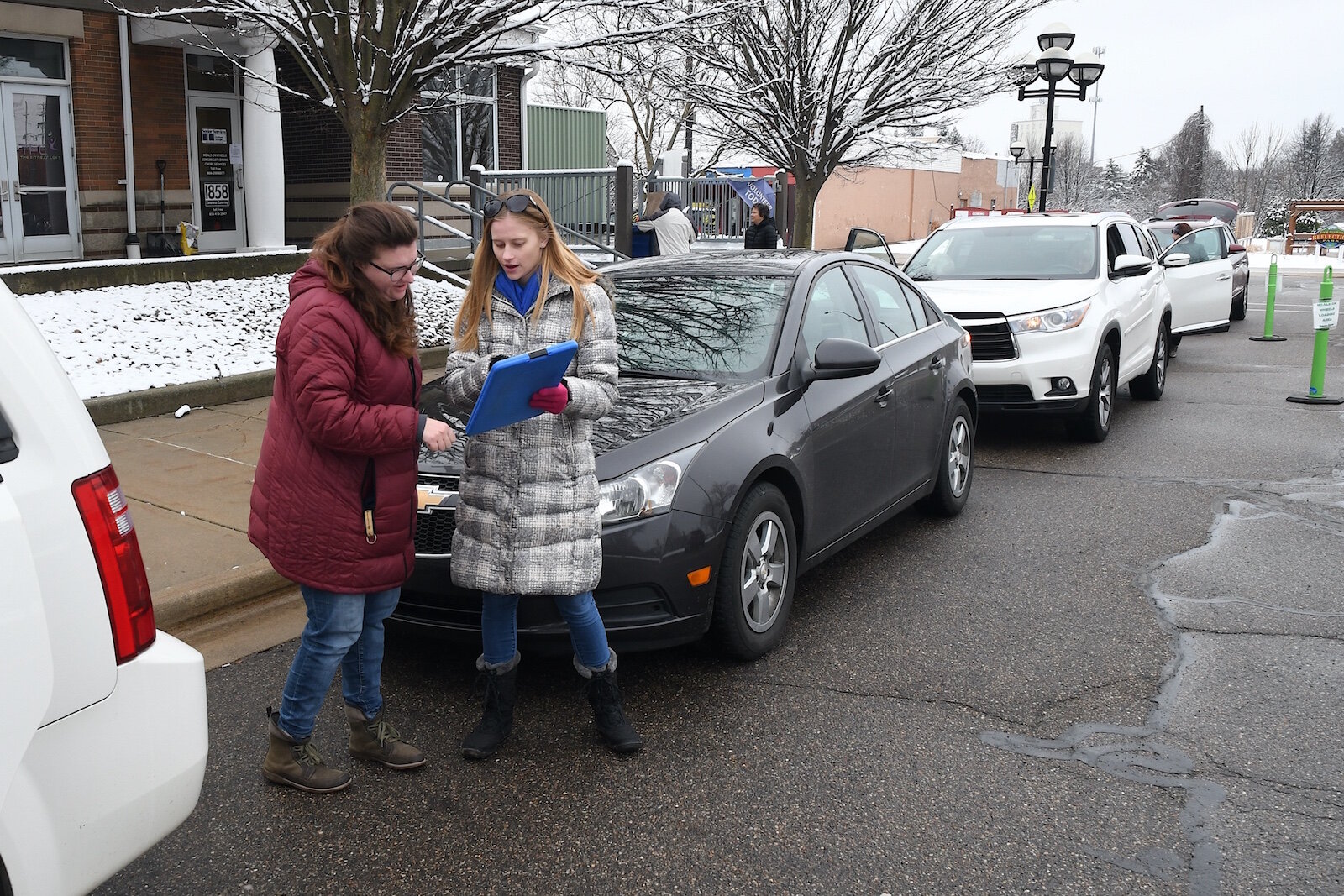
To augment the daily face-to-face interactions a Telephone Reassurance Program is expanding to reach out to more seniors who are seeing their opportunities to socialize shrink dramatically. A similar program had already been going on at Chapel Hill United Methodist Church in Battle Creek and the Fork Senior Center in Albion with younger volunteers and senior volunteers making phone calls, about 12 in all.
The calls, which were being done from each of these sites, are now happening at the homes of volunteers because of further statewide restrictions that went into place on Tuesday to address the Coronavirus.
Fales says more volunteers are needed and says anyone who is interested in receiving calls from seniors or the younger volunteers may call (269) 441-0930 or email here info@carewellservices.org to sign up. They will be matched with seniors and provided with a script.
“A lot of folks who use that program are truly homebound,” Guzzo says. “I’ve done some of the calls. It’s just a little check-in. Some people are chattier than others. You just ask how things are going. It’s just that little health check. If there are things that the volunteer caller is noticing that may not seem right, they know they can go to an on-site supervisor.
“The calls usually happen during the day, but seniors can ask for a call in the evening.”
Although Guzzo, Fales, and Pontius have always known about the resiliency of the senior populations they serve, they say it has bubbled to the surface in unexpected ways.
As an example, Guzzo cites the closure of the Fit & Fun classes at various locations throughout the county that provided supervised exercise and social interaction. Participants in these classes are given exercises they can do at home in between the classes.
“I talked to one woman who said she’s just been calling everybody she knows and walking up and down her stairs,” Guzzo says.
But, the cancellations and closures of classes such as Fit & Fun and events like the 11th Annual Calhoun County Senior Fair, has been difficult, Guzzo says.
“The Senior Fair has involved 650 seniors and 90 vendors who have been planning it for months with an emphasis on improving health outcomes,” she says.
The Centenarian Luncheon that would have happened in May has been pushed back to June and a partnership with Michigan State University to expand nutrition and diabetes programs has been put on hold. Guzzo says a Commodity Distribution program offered through the CAA will continue and a fresh food distribution program in Albion was recently given $5,000 to keep going.
“We’re now coordinating nutrition and the response to the national emergency,” she says.
Caring for the careers
As the number of Coronavirus cases increases, Pontius says his volunteer numbers will be impacted.
“Many of our volunteers are age 60 and better, that concern is there,” he says. “We are screening all of our staff and volunteers as a precautionary measure. We’re ensuring proper glove usage and hand washing policy. We’re also telling them don’t come to work if they have symptoms associated with the coronavirus. We want to reassure our funders and the community that we are doing what we can to mitigate the spread of the virus.”
He says, his younger staff members are expressing more concerns about being infected by the virus than his older workers.
“I have ladies in my kitchen who are over the age of 60 and they don’t seem to be concerned. I think our senior population has weathered a lot of storms,” Pontius says.
“The challenge is that many of our volunteers are older, active seniors and many are husband and wife teams. Many are fearful. As things go on and the number of cases grows, we could see more and more of our volunteer population isolated. We don’t want to stop services and we’re already having conversations about that.”
Guzzo says businesses and organizations have been contacting organizations such as Senior Services to fill in potential gaps in the volunteer pool.
But, she says, there are seniors who are working because they have to and retirement for them is questionable, especially now because of the Coronavirus. She says many of the CAA and Dial-A-Ride drivers are retired men and women who are over the age of 60 and need a part-time job to stay busy.
“Are more seniors going to retire or be laid off,” she says. “If they can’t find other work is that the end of their work-life? Older adults are being robbed of their retirement.”
As the uncertainty continues to swirl, Guzzo and Pontius say it’s important that people reach out to the community’s senior population to make sure they are weathering the pandemic. They say this contact is especially important for seniors who are homebound.
“Everyone,” Guzzo says, “should make huge efforts to check on the seniors in their lives and call them.”

